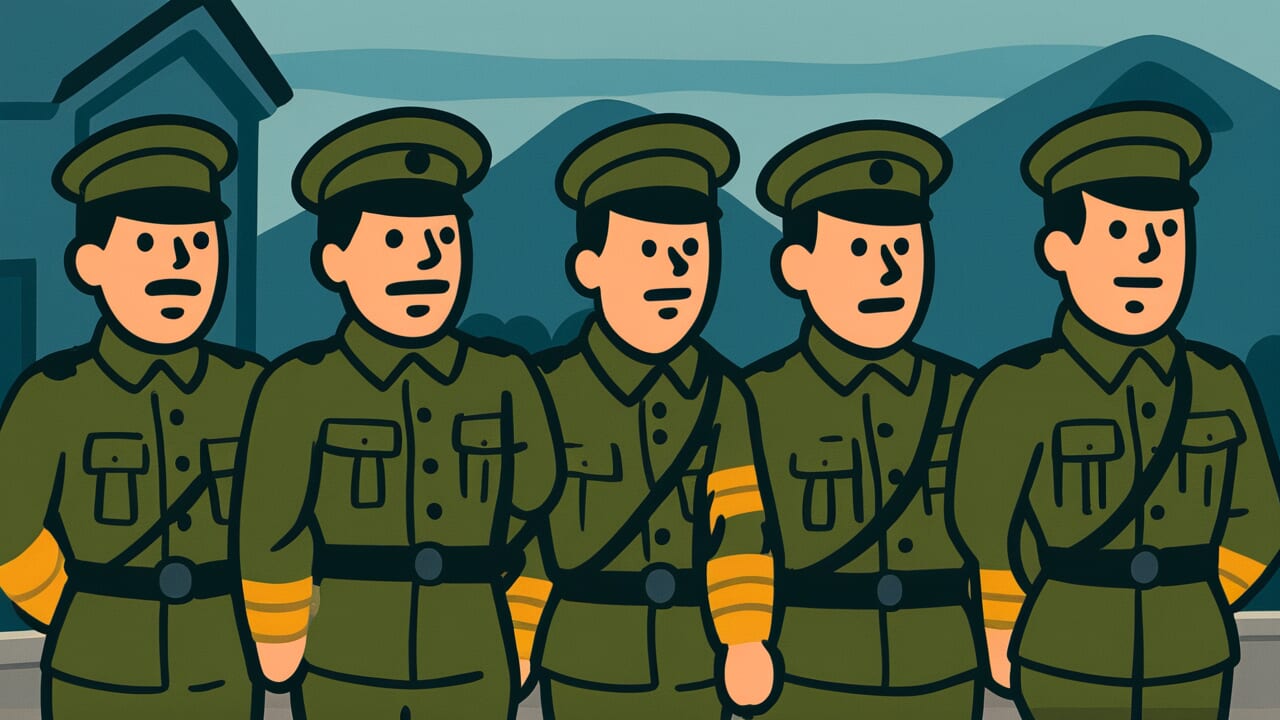How to Read “An army lies in harmony, not in numbers”
Gun wa wa ni atte shū ni arazu
Meaning of “An army lies in harmony, not in numbers”
This proverb teaches that an army’s true strength comes from unity, not from how many soldiers it has. No matter how large a force is, it cannot show real power if the soldiers’ hearts are scattered and lack coordination.
On the other hand, even a small group can face an enemy many times larger if everyone shares the same goal and unites their hearts.
This expression is used when thinking about how organizations and teams should work. It emphasizes the importance of strengthening internal bonds first, rather than just focusing on gathering more people.
Even today, this wisdom lives on in companies, sports teams, and all kinds of group activities. Before pursuing growth in size, building trust between members and developing a shared sense of purpose creates the foundation for true strength.
Origin and Etymology
The exact source of this proverb has several theories, and no definitive text has been identified. However, it is believed to be influenced by classical Chinese military philosophy.
The emphasis on “harmony” particularly connects to ancient Chinese military thought, including Sun Tzu’s Art of War.
“Harmony” here doesn’t just mean getting along well. It refers to a state where hearts become one. “Numbers” means numerical superiority, or quantitative advantage. This contrast forms the core of the proverb.
Throughout history, commanders have worked hard to increase their troop numbers. But looking back at history, there are many examples of small elite forces defeating large armies.
In Japan too, battles like Okehazama are remembered, where the numerically inferior side won victory.
From these historical lessons, the question arose: what makes an army truly strong? The answer reached was that unity of heart is the source of power, more than sheer numbers.
A small group united toward one purpose can display far greater strength than a large army with scattered hearts. Our ancestors condensed this universal truth into simple words.
Usage Examples
- Rather than adding new members, let’s strengthen our current team’s unity. An army lies in harmony, not in numbers, after all
- They have more people, but we have teamwork. Let’s believe in the words “An army lies in harmony, not in numbers” and do our best
Universal Wisdom
This proverb has been passed down because humans instinctively want to rely on “strength in numbers.” When facing difficulties, we first try to increase our allies.
We feel safer the more people we have.
But history has repeatedly proven the harsh reality that numbers alone cannot win. Rather, as numbers increase, unifying intentions becomes harder, and internal conflicts arise more easily.
If everyone faces different directions, power becomes scattered, and the result is weakness.
On the other hand, the power of a group with connected hearts is immeasurable. When people trust each other and move toward the same goal, they display strength they couldn’t show alone.
They carry their companions’ feelings and work hard for their companions. This synergy is true strength that cannot be measured by numbers.
Our ancestors saw through to the essence of organizations. Not superficial scale or numbers, but invisible bonds and trust are the core that strengthens groups.
This wisdom is an eternal truth that will never fade as long as humans live in groups.
When AI Hears This
Expressing military combat power as a formula reveals something interesting. Say Army A has 10 soldiers and Army B also has 10 soldiers. Simple addition makes both “10.”
But actual combat power is completely different. In Army A, the 10 people move separately, while in Army B, they coordinate.
Emergence theory calls this a “nonlinear effect.” In other words, 1+1 doesn’t equal 2, but becomes 3 or even 5. For example, one brain cell can do nothing, but 100 billion cells forming a network creates consciousness.
This is a completely new property that cannot be explained by just adding cells.
Armies are the same. If 10 soldiers are scattered, combat power is 10, but with perfect coordination, combat power becomes 30 or 50. Conversely, even with 100 people, if there’s internal conflict, combat power can drop below 50.
Ant research proves this too. Experiments confirm that 100 ants sharing information through pheromones make the entire colony several times more efficient than 100 ants moving randomly.
This proverb shows the core of modern complexity science: system performance is determined not by “number of elements” but by “quality of relationships between elements.” Changing how connections work is more effective than increasing numbers.
Lessons for Today
This proverb teaches modern people that when we want to accomplish something, the first question should not be “how many people can we gather?” but “how much can we unite our hearts?”
Before desperately trying to increase the number of people you connect with on social media or chasing superficial networking, deepening bonds with truly trustworthy companions is far more important.
At school or work, building relationships where you understand and support each other in small numbers enriches your life more than belonging to large groups.
The same applies when starting projects. Rather than trying to involve many people from the start, begin by creating solid trust with a few people who share your aspirations.
If genuine unity is born there, that power will produce results beyond mere numbers.
Where you are now, what you should cherish first are the companions right in front of you. Connecting hearts with those people and walking in the same direction creates the real strength to overcome any difficulty.



Comments